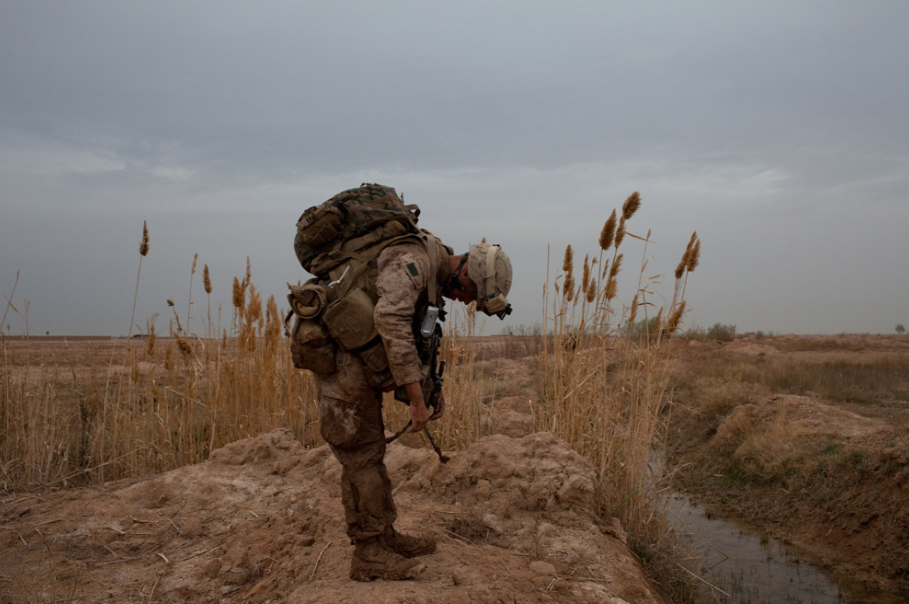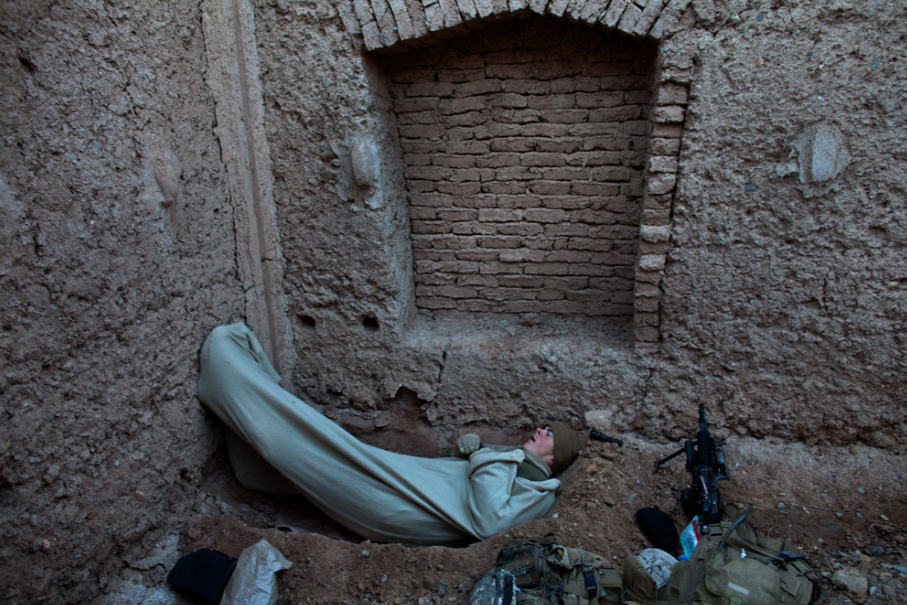The caption reads, “Towards the end of a two-day road-clearing mission, a marine got a moment’s rest.” It is a reminder of war’s numbing brutality, not just as a matter of lives and limbs lost, but in terms of its impact on the human soul. Bent double, his shoulders slumped, he appears to be exhausted by the sheer weight of his weapon and equipment, if not more so by the stressful weight of his charge to clear a road of bombs on what appears to be a road to nowhere; we might say that he is suspended in a state of rest—somewhere between standing and sitting, or perhaps in a liminal state between life and death — but we surely can’t say that he is resting. His line of sight is directed downward. He can see no more than the craggy ground beneath his feet—if he see’s at all. And where he will go next is not clear as he seems literally to have come to the end of the road. Perhaps that’s the point.
War takes its toll in many ways, not least by how it deadens the human spirit by thoroughly disrupting the ordinary routines of everyday life like eating a meal or taking a bath, or as in the picture below, getting a restful night’s sleep.
Once again we see a soldier who is utterly exhausted, or as perhaps the photograph implies, “dead to the world.” In Greek mythology Thanatos and Hypnos – the personifications of death and sleep – were twin brothers, hardly distinguishable from one another. And so it is here. The scene, with its bricked-in doorway invites comparison with an ancient burial crypt, the sleeping bag calls forth images of modern war’s ubiquitous body bags, and the “bed” itself bears resonance with a shallow grave. The awkward and rigid tilt of his legs and back implies the state of rigor mortis. His hands seem to be ceremoniously placed upon his breast, as one often finds with a funereal corpse, and the expression on his face is frozen in place. Only the color in his cheeks resists a totalizing narrative of death. One might confuse him with any number of images of homeless people slumbering in alleyways or under bridges—and how many of them are recognized for the veterans they are?—but for the conspicuous presence of an automatic weapon within his arm’s reach, a clear sign of his warrior status. In all likelihood he is only half asleep—once again in a liminal state somewhere between sleep and death—ready to muster at the crack of a rifle.
War kills, and there is nothing new in recognizing that. What we too often fail to see is that it also produces a “living death” that bears its cost in different but no less tragic terms.
Photo Credit: Tyler Hicks/NYT.
Cross-posted at BAGnewsNotes.


Discussion